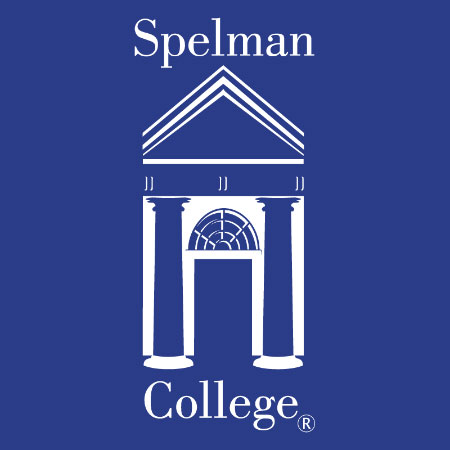
Faculty Name
Stephen Knadler, Ph.D.
Title
Chair of English, Professor
Department
English
Phone
404-270-5575
Office Location
Camille Olivia Hanks Cosby, Ed.D. Academic Center 303
Education
Ph.D., M.A., Vanderbilt University
Biography
Dr. Stephen Knadler is professor of English and chair of the Department of English at Spelman College where he teaches courses in U.S. literature and cultural studies. He is the author of "The Fugitive Race: Minority Writers Resisting Whiteness" (U Press of Mississippi, 2002), "Remapping Citizenship and the Nation in African American Literature" (Routledge, 2009/10), and "Vitality Politics: Health, Debility, and the Limits of Black Emancipation"
His most recent monograph theorizes and examines how African American cultural production in the early twentieth-century U.S. troubled and also redeployed a biopolitical management around slow violence, health, and disability central to the emergence of modern racial capitalism and liberal citizenship. Two related articles have been published recently in Studies of American Fiction, Fall, 2016 (“Exceptional Minds, Unstated Exceptions: Intellectual Disability and Post-War Liberal Meritocracy in African American ‘White Life’ Novels”) and in J 19, Spring, 2017 (“Narrating Slow Violence: Post-Reconstruction’s Necropolitics and Speculating beyond Liberal Anti-Race Fiction”).
He received an NEH and UNCF Mellon grant to work on this manuscript. He is currently working on a project on race and neurodiversity that looks at questions of mental health, anti-blackness, and the imagining of racial equality and justice.
Courses Taught
- U.S. Latino/a Literature and Culture
- Trauma and Testimony in Women’s Life Writing
- U.S. Racial Masculinities
- Imagining Afro-Asia
- American Body Politics: The 1850s
- Germs, Genes, and Zombies: Narrating Biomedicine,
- Narratives of Biomedicine
- Literary Theory Seminar
- Honors Composition
- Introduction to Literary Studies
- 19th-Century U.S. Literature
- U.S. Literature after 1900
- Comparative U.S. Ethnic Literatures
- First-Year Composition
- First-Year Experience
Research Interests
Critical race studies, disability studies, masculinity and queer studies, African American transnationalism, U.S. multiracial literatures, constructions of whiteness.
Publications
BOOKS
"Vitality Politics: Health, Debility, and the Limits of Black Emancipation." Ann Arbor: University of Michigan Press, 2019.
"Remapping Citizenship and the Nation in African-American Literature." New York: Routledge Press, 2009
"Fugitive Race: Narrating and Resisting Whiteness, 1850-1980. Jackson, MS": The University Press of Mississippi, 2002
ARTICLES
"Neurodiverse Afro-fabulations: Pauline Hopkins's Counterintelligence." American Literature, vol. 94, no. 2, 2022, pp. 301-329.
“Opioid Storytelling; Rehabilitating a White Disability Nationalism,” Journal of American Cultural Studies (April 2021): 1-27.
“Antebellum African American Freemen’s Narratives and Semi-Citizenship.” African American Literature in Transition, 1850-1865. Ed. Teresa Zackodnik. Cambridge University Press (2020).
“Narrating Slow Violence: Post-Reconstruction Necropolitics and Speculating beyond Liberal Anti-Race Fiction,” J-19: The Journal of Nineteenth-Century Americanists 5.1 (Spring, 2017): 21-50.
“Exceptional Minds, States of Exception: Intellectual Disability, Inadequacy, and the African American ‘White Life’ Novel.” Studies in American Fiction 43 2 (Fall, 2016): 231-57.
“The Bright Side”: African American Women and the Affective Archive of Southern Racial Uplift.” In "Critical Approaches to Southern Literature." Ed. Barbara Ladd and Fred Hobson. Oxford Handbook to Southern Literature. New York: Oxford University Press, 2016.
"Dis-abled Citizenship: Narrating the Extraordinary Body in Racial Uplift.” Arizona Quarterly 69 3 (Autumn 2013): 99-128.
"Unsanitized Domestic Allegories: Biomedical Politics, Racial Uplift, and the African American Woman’s Risk Narrative." American Literature 85 1 (March 2013).
“Back to Oriental Africa: Islamicism and Becoming African in the Early Black Atlantic.” Modern Language Quarterly 72 1 (Spring 2011)
"Democracy Hesitant: Sociological Knowledge Production, Policy, and the Public Sphere.” American Literary History 23 1 (2011): 135-147
“At Home in the Crystal Palace: African American Transnationalism and the Aesthetics of Representative Democracy.” ESQ: The Journal of the American Renaissance 56 (2010): 329-362
News
Winner of the 2018 Tobin Siebers Prize for Disability Studies in the Humanities
